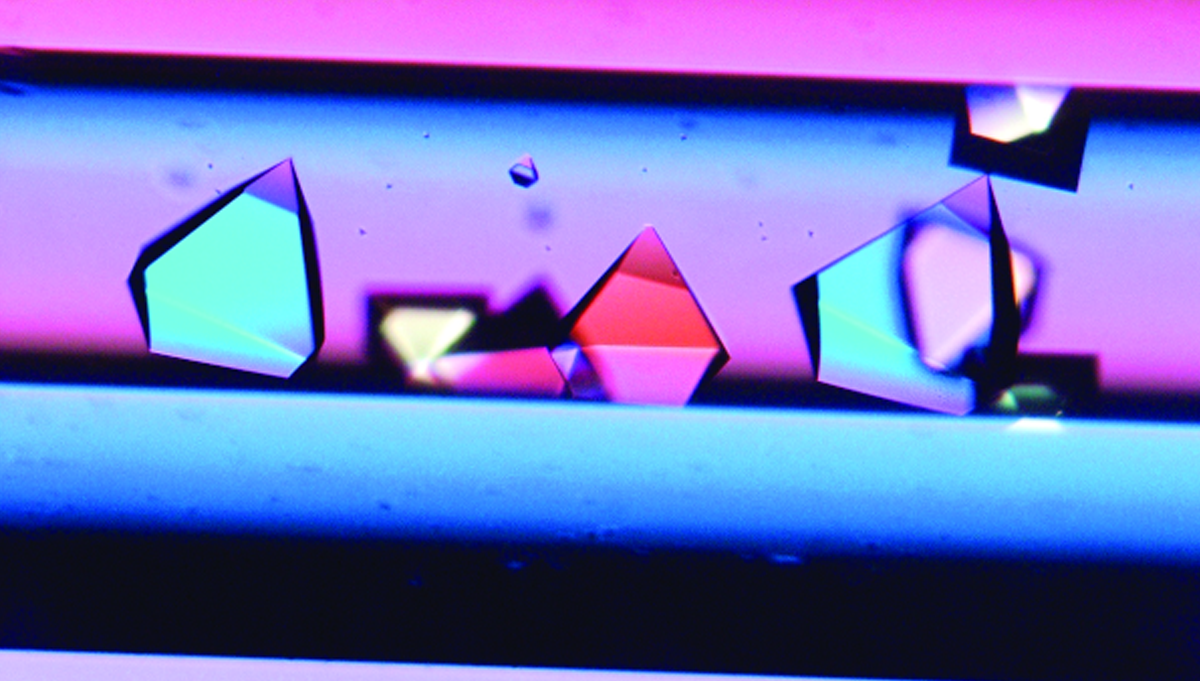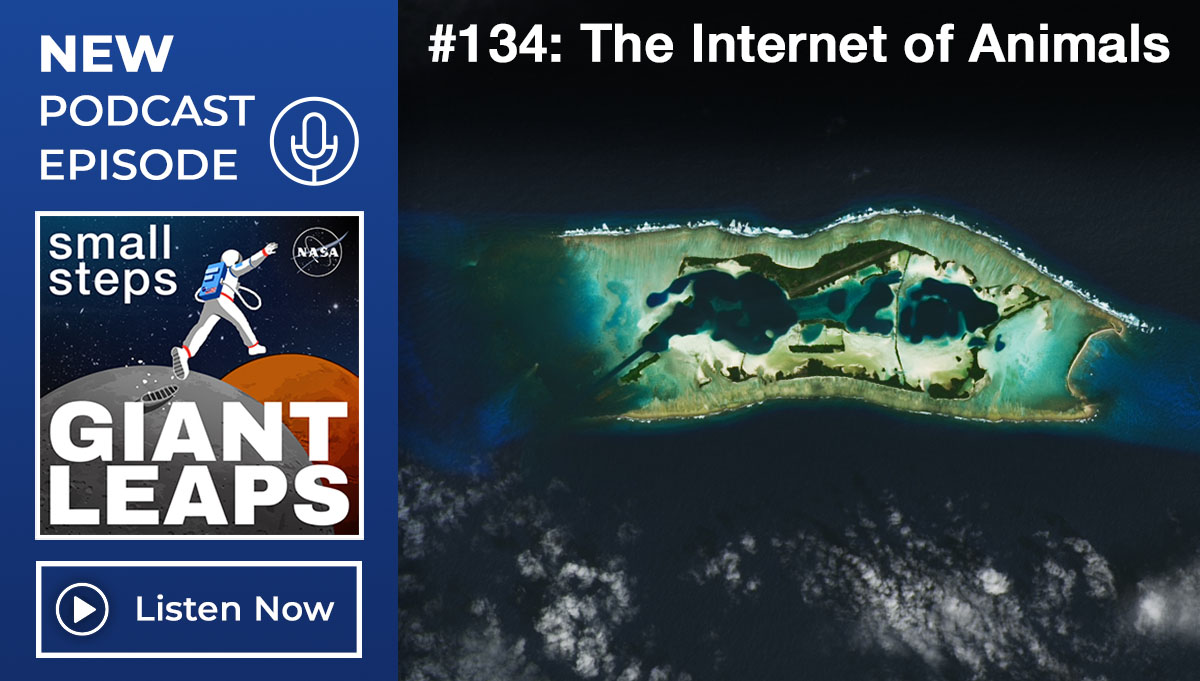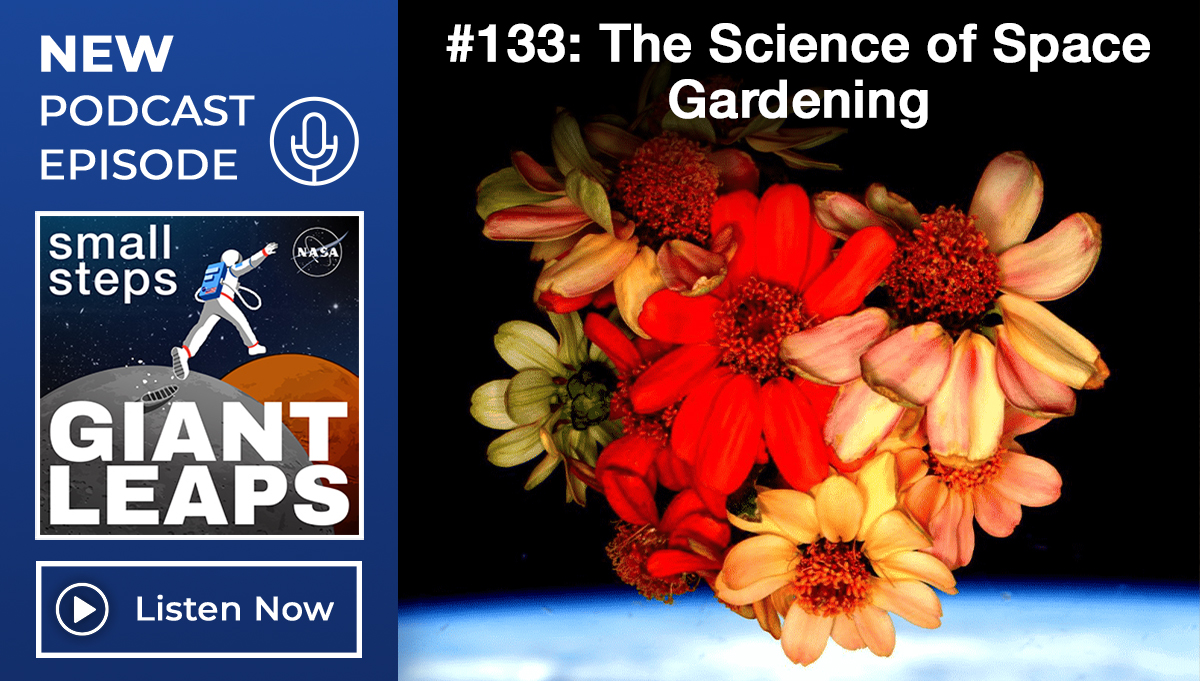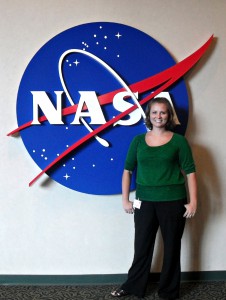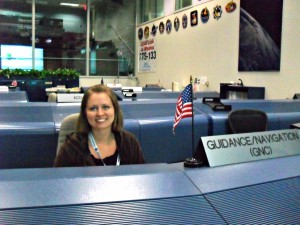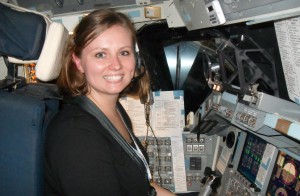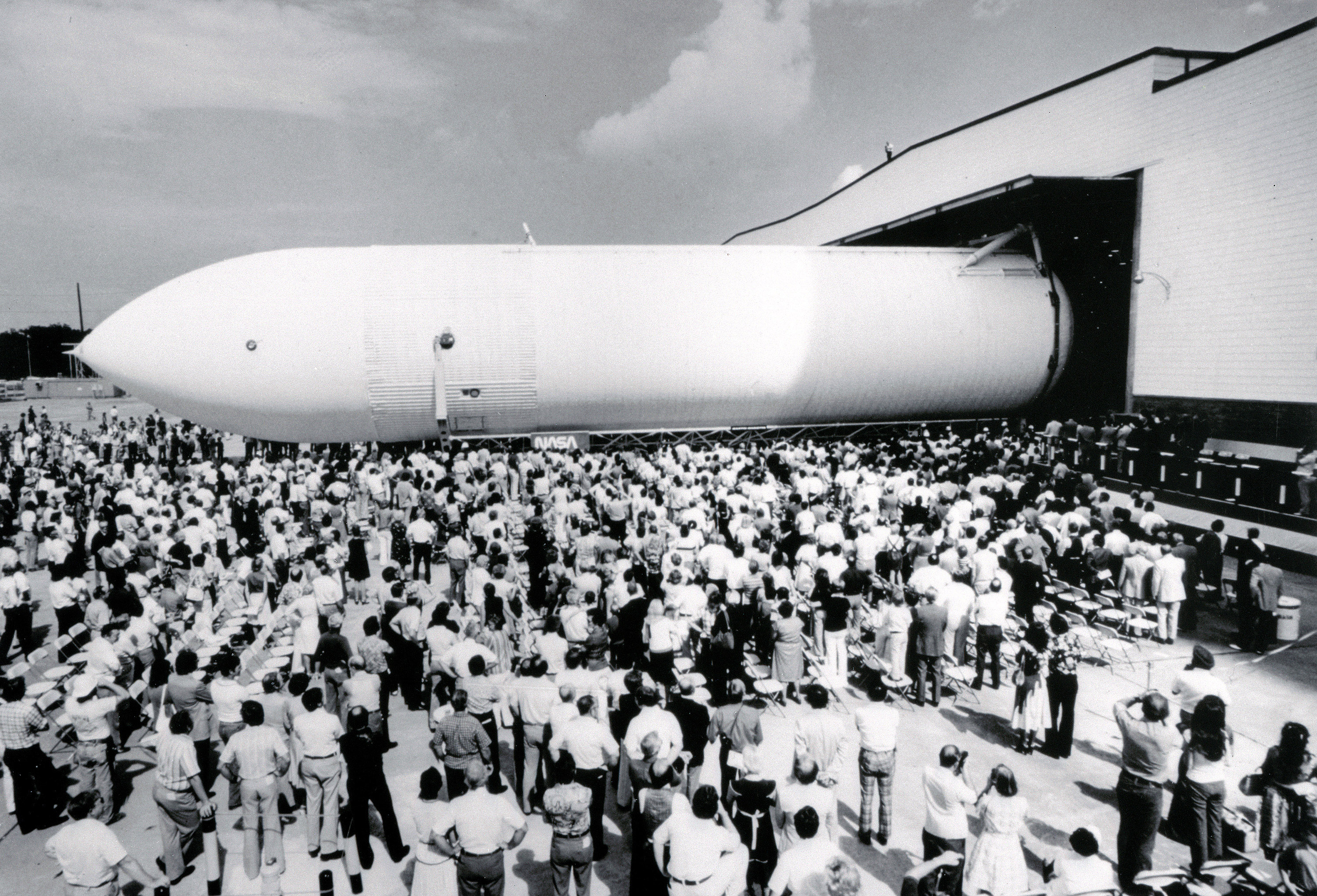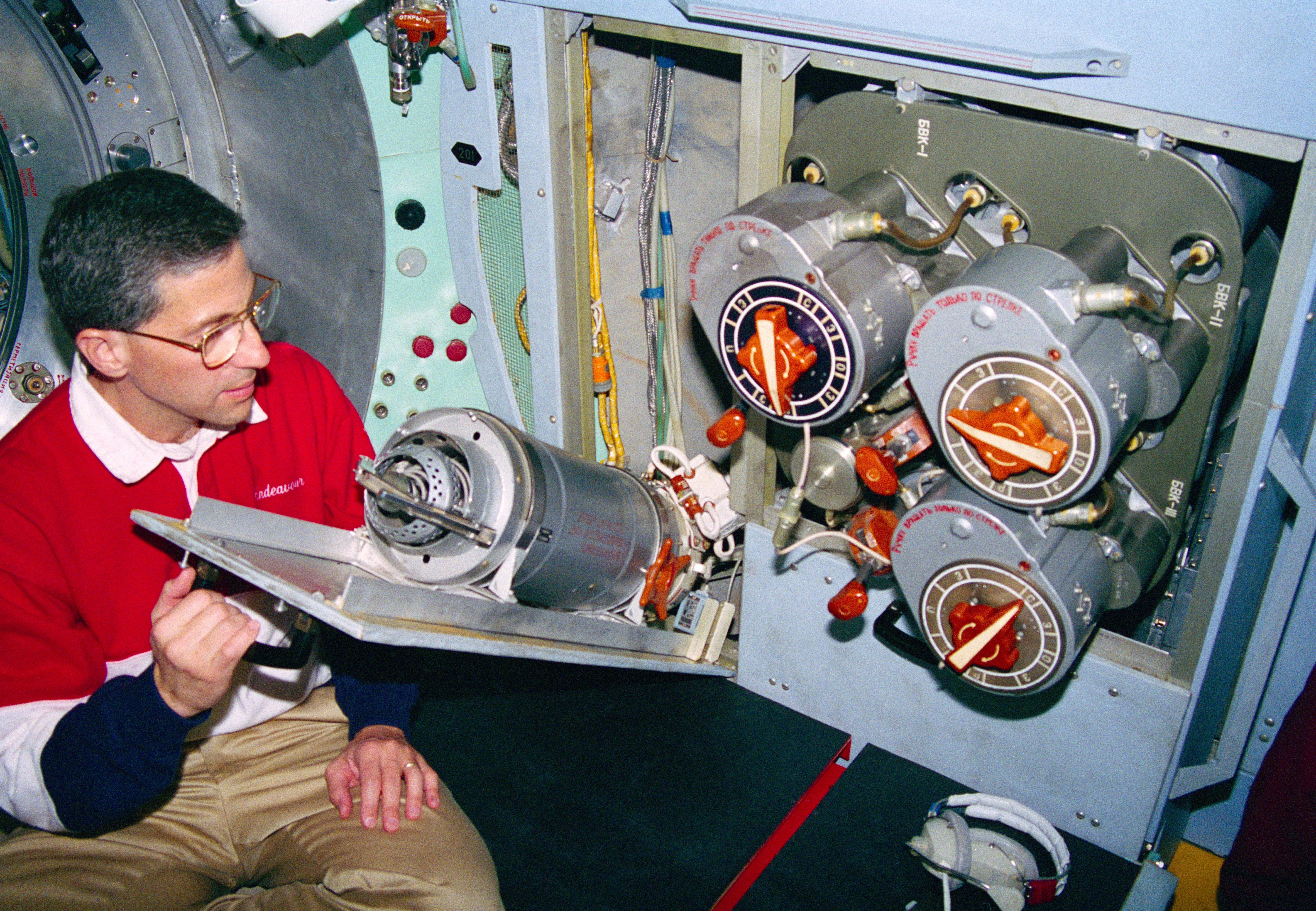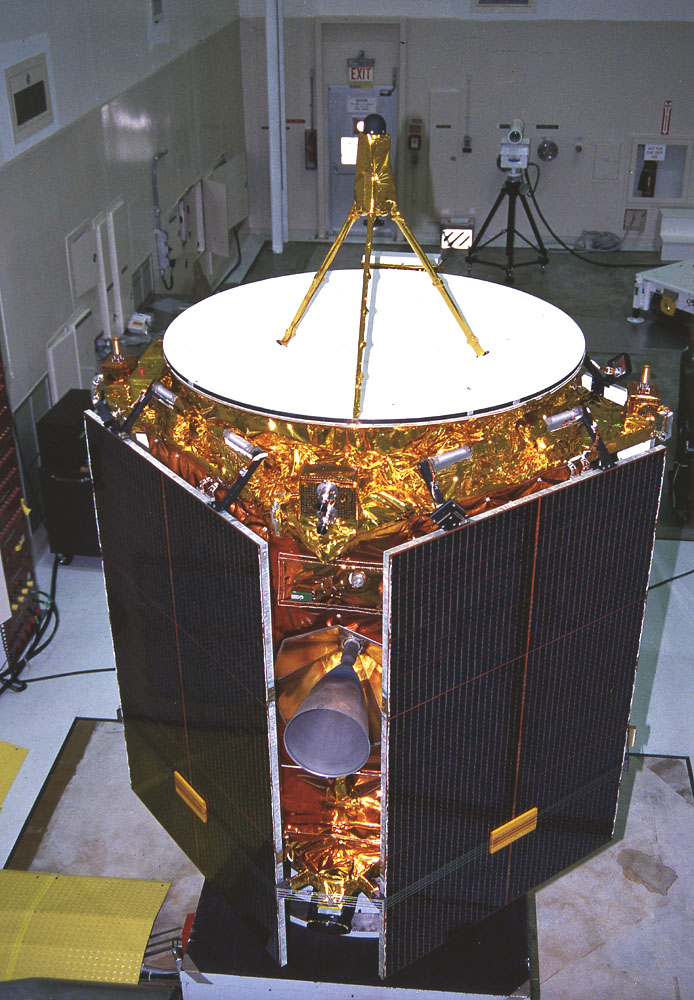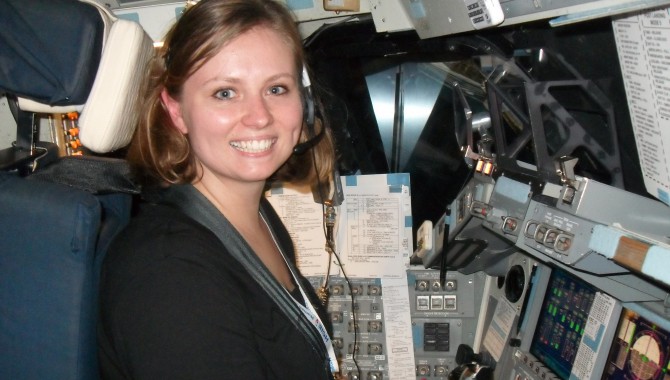
By Alina Zater
My name is Alina Zater, and I’m a senior at American Public University, where I’m soon to earn a bachelor of science in space studies.
I was born in Ukraine (the former Soviet Union) to a family through which a deep and inspiring passion for the space industry has coursed like fire from grandfather to uncle, mother, and into me. For nearly twenty-three years, I’ve been a naturalized U.S. citizen, and it’s been here in America where, through hard work fueled by an insatiable hunger, my long-held dreams to be a part of the space industry and the NASA family have begun to see the light of day.
The fire in my grandfather’s heart ignited a hunger to reach for the heavens long before Russia began to develop its space agency. He worked as a test pilot in the Soviet Union’s military, where his life epitomized the idea of “pushing the envelope.” He was known to speculate about how it would be to one day fly among the stars. During such moments, the light from the fire within gleamed in his eyes. His work eventually included being responsible for capability testing of spacesuits and new hardware. The tests provided valuable information that contributed greatly to the Soviet space program.
My grandfather’s fire passed like a torch to his son, my uncle, igniting in him an overwhelming desire to become a cosmonaut. My uncle studied hard in school and, to the great joy of his family, was accepted into the Cosmonaut Training Program. Unfortunately, a debilitating fear of heights eliminated him from the program. His phobia was an unconquerable obstacle to attaining his dream to fly beyond Earth’s atmosphere. Unwilling to give up on his heart’s desire, he completed his master’s in engineering and won a position among the team responsible for building the vehicle that would deliver others to space. If he couldn’t get there himself, he reasoned, he’d do all he could to get someone else there in his stead. His passionate drive and desire to succeed earned him the opportunity to work directly under Sergey Korolev, father of the Russian space program. My uncle’s love for and dedication to the program brought him the honor of being considered one of Korolev’s most valued engineers.
The fire then passed to my uncle’s little sister, my mother, sixteen years his junior. He exposed her to the space industry when she was young, enthralling her immediately. Growing up, she had the opportunity to attend political and space-industry-related briefings and dinners. While most teenage girls collected the records or posters of pop stars, my mother collected all the cosmonaut memorabilia she could get her hands on.
Math and chemistry came naturally to her, and, though she was given an opportunity to attend the Moscow School of Engineers, my mother decided to focus on chemistry. Landing a position in the space agency’s chemistry department, she worked with a team of chemists to develop the protective layer later used for all the Russian space and military rockets.
I wondered how a girl from the former Soviet Union could ever be accepted in the American space industry.
From my mother the fire passed to me. Despite the torch’s burning within my heart, as a young girl I limited myself due to a lack of confidence. I wondered how a girl from the former Soviet Union could ever be accepted in the American space industry. Even if accepted, would I have the wherewithal to succeed in such an intense field? Allowing my apprehensions to control my decision making, I pursued paths unrelated to the space industry.
That said, I did take on opportunities that presented themselves. I earned an associate of science degree in computer networking; soon after, I earned an associate of art. I married. I worked in several intellectually challenging and rewarding industries that helped mold me into the person I am today—for instance, when I trained emergency room doctors. But a lack of satisfaction left me feeling incomplete.
I could not escape a strong sense of destiny pulling me inextricably toward my heart’s passion: space. The flame of my family’s torch seemed to only intensify with the passage of time. All I wanted to do was pick that torch up and run with all my might.
Fate, it would seem, removed the excuses I had used to procrastinate. Like so many during these tough economic times, I found myself suddenly out of work, a result of company downsizing. Instead of seeing this event as devastating, I saw it as an opportunity to give my dream a chance. With the unconditional, loving support of my husband and family, I went back to school to earn an advanced degree in space studies.
When researching where to enroll, I found the American Public University System, a 100-percent online school with a space studies program. Intrigued but cautious, I called to inquire further. I spoke with Dr. Ford, the director of the information technology and science department. His availability and his passion for the space industry and the university’s program served as an accelerant to my own passion and removed concerns I may have had about matriculating with an online-only university.
I enrolled and started courses the very next semester, a decision that’s proven every day since to be one of the most rewarding I’ve ever made. And considering my love for this country, the gift of opportunity it provides for all of us to obtain our dreams, I find it an honor to be a part of a university with such a fitting name.
While most teenage girls collected the records or posters of pop stars, my mother collected all the cosmonaut memorabilia she could get her hands on.
Now I’m only three classes away from graduation. Since I started this journey during the spring 2011 term, I had the life-impacting privilege to be accepted into and complete an internship at the Johnson Space Center in Houston. Sponsored by NASA’s largest nationwide internship program, the Undergraduate Student Research Program, I was assigned to the distance learning team in the Mission Operations Directorate (MOD) Spaceflight Training Management Office. The distance learning team develops a next-generation online learning experience for astronauts, flight controllers, and instructors. My mentor, Valerie Gordon, says, “Spaceflight training is a complex, heavily integrated activity, requiring efficiency in both planning and execution to meet flight dates and timely certification requirements for crew and MOD personnel.” The goal of this project is to provide on-demand training. To accomplish this goal, the distance learning team converts classroom content into a fully web-based environment, creating interactive, media-rich lectures and multimedia presentations. Students are able to access training content at any time, assisting them in gaining and maintaining proficiency of both technical and soft skills required for spacecraft mission operations.
Arriving at MOD, my first assignment was to learn four separate lesson-development programs, of which three were new to the entire team. As I became comfortable with the programs, I contributed improvement insights and guidance for their future use. Additionally, I performed ongoing configuration control of available lessons, ensuring that the programs presented up-to-date material and all technological aspects of the lessons worked properly.
In the beginning, I received and successfully completed a number of small projects, allowing me to foster credibility and trust with my mentors. My hard work paved the way to an incredible opportunity to lead the development effort of a key product for the distance-learning department and the Spaceflight Training Management Office. I directed the development of a cutting-edge, interactive, online-based training lesson that now serves as a prototype for introducing the current technological capabilities of our department. The prototype combined several traditional classroom lessons into one distance-learning course.
And from here … the future: as big and unlimited with opportunity for discovery as space itself.
I worked closely with subject-matter experts to ensure that the progress of the lesson development adhered to a planned time frame, achieving completion in time for the exhibit at the end of my spring term. My enthusiasm for this industry and passion for my work assisted in me being nominated for and winning the “Outstanding Intern” award of spring 2011.
My experience at Johnson was life changing. The people and their knowledge of and passion for the industry provided an experience that solidified my dream into reality. The successes of my internship have boosted my confidence and stoked the passion within me. It’s a passion shared with kindred spirits among a community of people who have become friends and my extended family.
I believe my drive for excellence in my school work, the successes of my NASA internship, and my passion have contributed to earning my second, current internship opportunity, which I recently began at the Kennedy Space Center, working for the Academy of Program/Project and Engineering Leadership in the Academy Center for Excellence.
And from here … the future: as big and unlimited with opportunity for discovery as space itself.
About the Author
 |
Alina Zater is a student of American Public University Systems and is pursuing a bachelors degree in space studies. She is currently completing her second internship at NASA with the Academy of Program/Project and Engineering Leadership after a successful spring internship at Johnson Space Center, where she won the Outstanding Intern award for her accomplishments. |


